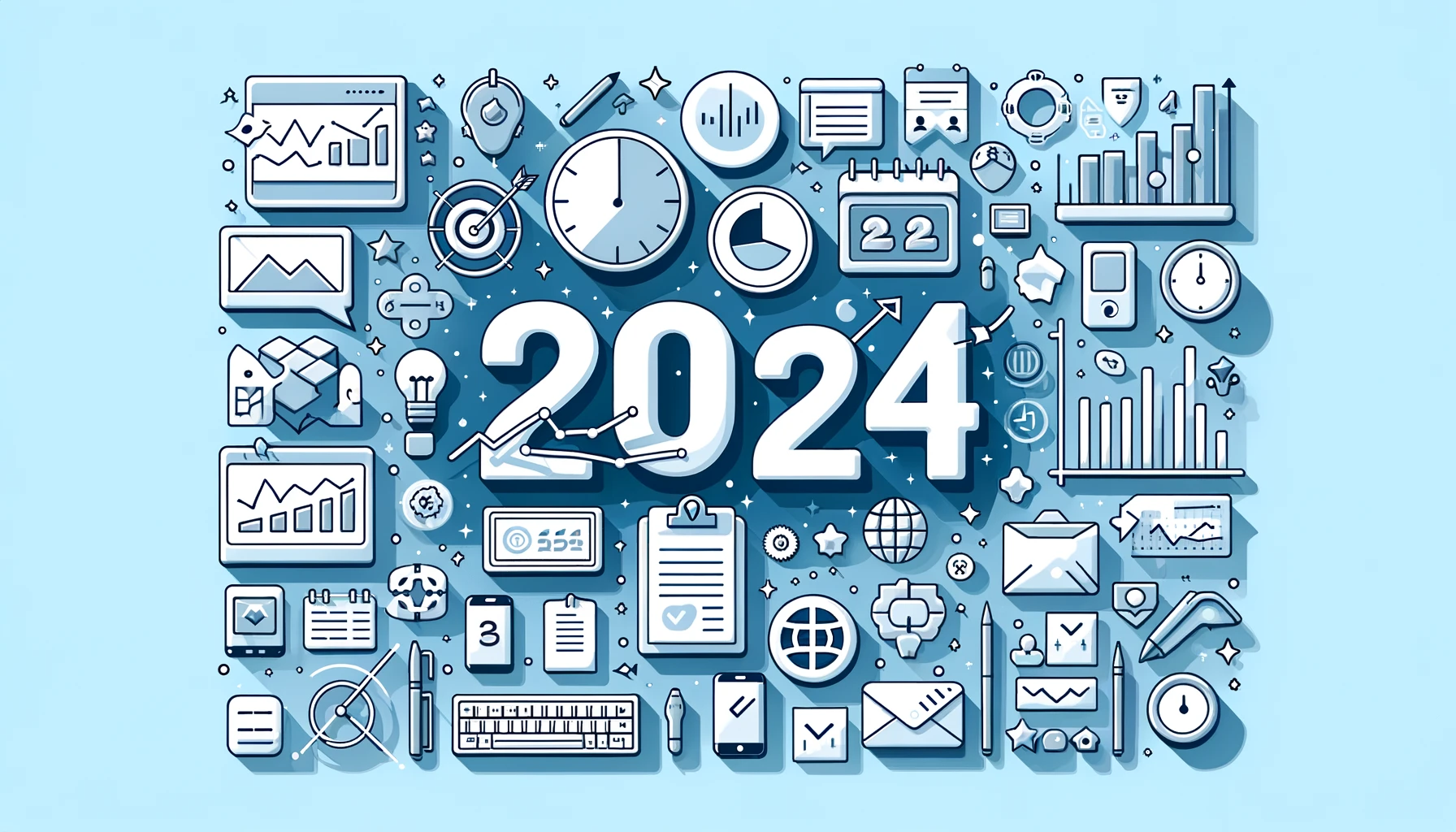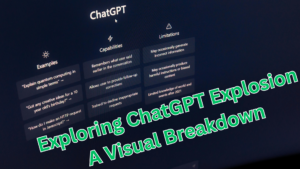As we venture into 2024, the event marketing industry is poised for unprecedented growth, with a forecasted value of $36.31 billion. This concise overview dives into the latest trends and statistics, shedding light on the blend of virtual, hybrid, and in-person events shaping the future. Ideal for journalists seeking insightful data, this post navigates the evolving landscape, offering a snapshot of what’s driving industry success and attendee engagement in this dynamic era.
Table of Contents
Top Event Marketing Statistics
Before we delve into the comprehensive analysis, let’s highlight the key event marketing statistics for 2024 and beyond:
- Industry Value 2024: Expected to grow to $36.31 billion by 2026.
- Digital Shift: 90% foresee large-scale events as remote or hybrid soon.
- Buyer Event Fatigue: Noted by 90% of B2B marketers.
- Increased Demand for Live Streaming: Wanted by 57% of attendees.
- Success in Digital: Over 90% rate their virtual/hybrid events as effective.
- ROI on In-Person Events: Highest according to 47% of marketers.
- B2B Marketing Strategy: 60% prioritize in-person events.
- Generative AI Adoption: 56% of users plan more in-person event integration.
- Main Challenges: Include resource scarcity (26%), budget limits (23%), and tech constraints (20%).
- Gen Z Engagement: Career and networking opportunities are key.
The State of Event Marketing in 2024
The event marketing landscape is undergoing a dynamic transformation, with the industry projected to grow to $36.31 billion by 2026. This significant growth, indicative of the sector’s vitality and its expanding role in the global marketing strategy, is powered by an impressive Compound Annual Growth Rate (CAGR) of 12.96% from 2021. Such figures not only underscore the industry’s robust recovery post-pandemic but also highlight the strategic pivot towards more digitally inclusive event formats.
The Surge in Event Marketing Value
The projection of the industry reaching $36.31 billion by 2026 marks a pivotal moment for event marketing. This forecast reflects a growing recognition of events as a critical tool for engagement, networking, and driving sales, showcasing a marked shift in how brands allocate their marketing resources and efforts.
The Digital Evolution: Virtual and Hybrid Events
In response to evolving audience preferences and the unforeseen challenges brought on by global disruptions, there’s been a significant shift towards virtual and hybrid events. A staggering 90% of event organizers now believe that the future of large-scale events lies in these formats, signaling a paradigm shift in event execution strategies.
Virtual and Hybrid Event Effectiveness
The effectiveness of these digital event formats is noteworthy, with over 90% of event marketers reporting success in their virtual and hybrid endeavors. This high success rate highlights the adaptability of the industry and its ability to leverage technology to maintain, and even enhance, audience engagement and brand visibility in a changing world.
This shift not only reflects a strategic adaptation to current global circumstances but also aligns with broader trends in digital transformation and consumer behavior. The embrace of virtual and hybrid events underscores the industry’s commitment to innovation, accessibility, and sustainability, ensuring that event marketing continues to be a powerful tool in the marketer’s arsenal.
In summary, the state of event marketing in 2024 is one of growth, resilience, and rapid evolution. With the industry set to expand significantly and the adoption of virtual and hybrid formats becoming increasingly prevalent, event marketers are at the forefront of redefining engagement and connectivity in the digital age.

Key Event Marketing Statistics and Trends
In 2024, the event marketing industry is defined by groundbreaking statistics and trends that underscore the evolving dynamics of how businesses engage with their audiences. Here, we delve into the pivotal data points and trends that paint a comprehensive picture of the current and future state of event marketing.
Industry Growth and Projections
- $36.31 Billion Industry Value by 2026: The projected growth rate of 12.96% CAGR from 2021 to 2026 highlights the expanding significance of event marketing in the global marketing strategy.
- Digital Events Drive Growth: The shift towards digital platforms is a key driver of this growth, reflecting the industry’s adaptability and innovative approach to engaging audiences.
The Rise of Virtual and Hybrid Events
- 90% Adoption Prediction: An overwhelming consensus among event organizers points to a future dominated by remote and hybrid events, indicating a strategic pivot in response to changing consumer preferences and the global landscape.
- High Success Rates: More than 90% of event marketers report successful outcomes from their virtual and hybrid event initiatives, underscoring the effectiveness of digital engagement strategies.
Event Fatigue Among B2B Buyers
- A Notable Challenge: With 90% of B2B marketers acknowledging “event fatigue” among buyers, the industry faces the challenge of innovating event formats and content to maintain interest and engagement.
- Strategies to Combat Fatigue: Marketers are exploring new ways to deliver value and ensure engagement, emphasizing the quality and uniqueness of the event experience.
Marketer and Attendee Preferences
- In-Person Events Still Valued: Despite the rise of digital formats, 47% of event marketers believe in-person events offer the highest ROI, highlighting the enduring power of face-to-face interactions.
- Attendee Demand for Interactive Content: Attendees express a desire for more live streaming options and interactive elements, with 57% wanting more live streaming at events, indicating a preference for engaging and dynamic content.
Generative AI and Event Marketing
- Enhancing Personalization and Engagement: A growing number of marketers are leveraging generative AI to create more personalized and engaging event experiences, signaling a trend towards more technologically advanced event solutions.

Looking Ahead: The Future of Event Marketing
The landscape of event marketing in 2024 is characterized by rapid innovation, technological integration, and a keen focus on meeting the evolving preferences of marketers and attendees alike. As the industry continues to navigate the challenges and opportunities presented by a digitally connected world, these key statistics and trends offer valuable insights for shaping future event marketing strategies.
Challenges and Opportunities in Event Marketing
The event marketing landscape in 2024, while ripe with growth and innovation, is not without its challenges. However, within these challenges lie significant opportunities for marketers to redefine the industry standards and create more impactful and engaging event experiences.
Main Challenges in Event Marketing
- Human Resources: A key challenge faced by event marketers is the lack of human resources. Organizing successful events requires a diverse set of skills and expertise, from content creation to technical support, making a well-rounded team essential.
- Budget Constraints: Budget constraints remain a significant hurdle for many in the industry. With the increasing costs associated with hosting both virtual and in-person events, finding cost-effective solutions without compromising on quality is a constant battle.
- Technology Limitations: As events become more digital, technology limitations present a significant challenge. Ensuring access to and the smooth operation of necessary technological platforms is crucial for the success of virtual and hybrid events.
Opportunities Arising from Challenges
- Budget Increases for Innovation: Despite budget constraints, there’s a noticeable trend towards increasing event marketing budgets, particularly for innovation in digital event platforms. This increase is a response to the growing recognition of the importance of events in marketing strategies and the potential ROI they offer.
- Generative AI in Event Experiences: One of the most exciting opportunities lies in the use of generative AI to enhance event experiences. From creating personalized content to facilitating more engaging and interactive sessions, AI technology offers a pathway to overcoming human resource limitations and enriching the attendee experience.
- Leveraging Technology for Engagement: The challenge of technology limitations also presents an opportunity to explore and adopt new platforms and tools designed to enhance virtual and hybrid events. This includes everything from advanced streaming services to interactive engagement tools that can transform the attendee experience.
Navigating Through Challenges to Discover Opportunities
The path forward for event marketing in 2024 involves turning these challenges into stepping stones for greater innovation and impact. By increasing budgets dedicated to event technology and innovation, and embracing the potential of generative AI, marketers can create more personalized, engaging, and successful event experiences. As the industry continues to evolve, these challenges and opportunities will shape the future of event marketing, driving the creation of more dynamic, inclusive, and impactful events.

Attendee Insights and Preferences
Understanding attendee preferences is crucial for designing events that not only attract but also deeply engage and satisfy participants. In 2024, the landscape of attendee expectations has evolved, with a clear demand for more interactive, accessible, and value-driven experiences. Here, we delve into what attendees are looking for in events, highlighting the importance of live streaming, interactive content, networking opportunities, and the specific interests of Gen Z.
Increasing Demand for Live Streaming
- Live Streaming: A significant 57% of attendees express a desire for more live streaming options at events. This preference underscores the need for real-time engagement and the value placed on accessibility, allowing participants to join from anywhere in the world.
Desire for Interactive Content
- Interactive Content: Attendees are not just passive observers; they seek to be active participants. Interactive content, such as Q&A sessions, polls, and workshops, is highly valued, providing a

The Future of Virtual and Hybrid Event Marketing
As we navigate through the evolving landscape of event marketing, virtual and hybrid events have solidified their place as cornerstones of the industry’s future. These formats not only offer resilience and flexibility in the face of changing global circumstances but also open new avenues for engagement and innovation. This section explores the statistics, challenges, and technologies that are shaping the future of virtual and hybrid event marketing, emphasizing the critical role of engagement metrics and attendee satisfaction in measuring success.
Growth and Adoption of Virtual and Hybrid Events
The adoption of virtual and hybrid event formats has seen a significant surge, a trend that is expected to continue. With 90% of event organizers predicting that future large-scale events will be remote or hybrid, it’s clear that the industry is moving towards more inclusive and accessible event experiences. This shift is driven by the need to reach wider audiences and provide flexible participation options, ensuring that events can thrive regardless of physical constraints.
Perceived Challenges
While virtual and hybrid events offer numerous benefits, they also present unique challenges:
- Consistency in Experience: Ensuring that both virtual and in-person attendees have equally engaging and valuable experiences is a significant concern for organizers.
- Technical Difficulties: From bandwidth issues to platform limitations, technical challenges are a frequent hurdle in the execution of digital events.
- Engagement: Maintaining high levels of engagement in a virtual setting, where distractions are more prevalent, requires creative strategies and solutions.
Technologies Driving Engagement
Innovative technologies play a pivotal role in enhancing virtual and hybrid events:
- Interactive Platforms: Tools that facilitate live polling, Q&A sessions, and real-time interactions are essential for keeping attendees engaged and involved.
- Augmented and Virtual Reality (AR/VR): These technologies offer immersive experiences that can significantly elevate the engagement and uniqueness of an event.
- AI-driven Personalization: Leveraging AI to tailor the event experience to individual preferences ensures higher levels of satisfaction and interaction.
Measuring Success through Engagement Metrics and Attendee Satisfaction
The metrics for evaluating the success of virtual and hybrid events are evolving:
- Engagement Metrics: Metrics such as time spent in sessions, interaction rates, and participation in polls and discussions provide valuable insights into how engaged attendees were during the event.
- Attendee Satisfaction: Surveys and feedback forms post-event are crucial for assessing the overall satisfaction of attendees, offering direct insights into the strengths and areas for improvement.
The future of virtual and hybrid event marketing is bright, filled with opportunities for innovation and deeper audience connections. As the industry continues to embrace digital transformations, focusing on engagement metrics and attendee satisfaction will be key to measuring success and driving the continuous improvement of event experiences. By addressing the challenges and leveraging new technologies, event marketers can create memorable, impactful, and engaging events that resonate with audiences worldwide.
Conclusion
The event marketing industry is poised for significant growth, with a clear trend towards the integration of physical and digital experiences. As we look towards 2024 and beyond, the blend of virtual, hybrid, and in-person events signifies a dynamic evolution, catering to diverse attendee preferences and leveraging technological advancements for enhanced engagement.
For more relative content check out: ChatGpt User Statistics, Emails Marketing Latest Trends, Emails Marketing Effectiveness and Artificial Intelligence Statistics.
Source: Explodingtopics, Daedal Research, MarketingCharts
We encourage journalists and readers to delve deeper into the statistics and trends shaping the future of event marketing. For those covering event marketing trends, we invite you to reference and link back to this post, enriching your articles with insights and data from our comprehensive analysis. Together, let’s navigate the future of event marketing with informed perspectives and innovative approaches.





